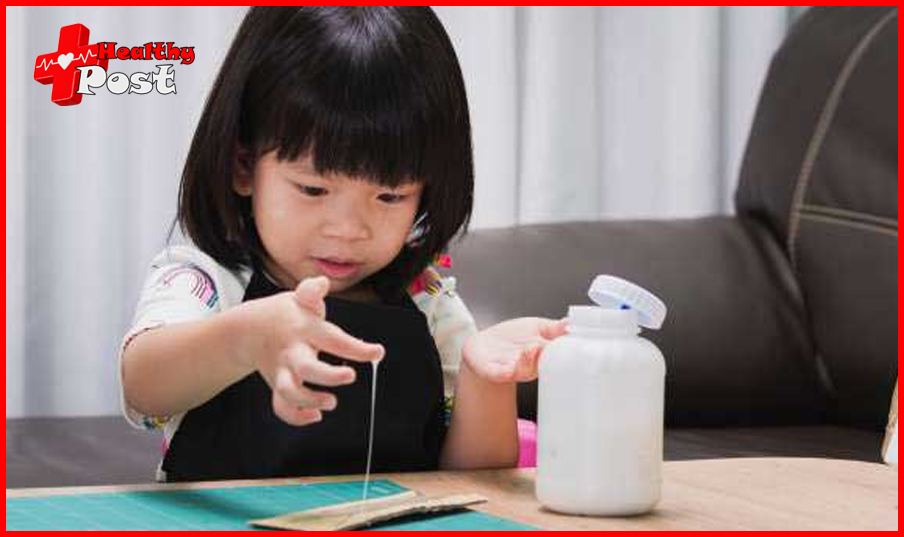
Eating glue: beneficial or harmful for health?
When you hear the phrase “eating glue,” your first thought might be childhood mischief or craft projects. But could there be actual health benefits to consuming glue? In this article, we’ll explore this unusual topic in detail. We’ll break down the facts, myths, and potential risks, while addressing common questions. Let’s dive in!
What Is Glue Made Of?
Before discussing the benefits, it’s important to understand what glue is made of. Most household glues contain chemicals like polyvinyl acetate (PVA), which is a synthetic polymer. Some glues also include additives like preservatives, thickeners, and solvents.
- PVA Glue: Commonly used in schools and homes.
- Epoxy Glue: Stronger and used for heavy-duty projects.
- Natural Glues: Made from animal byproducts or plant starch.
While natural glues might seem safer, they still aren’t designed for consumption.
Can Eating Glue Be Healthy?
The idea of eating glue for health might sound strange, but let’s explore the possibilities.
1. Potential Nutritional Value
Some natural glues, like those made from starch, contain trace amounts of carbohydrates. However, these are minimal and not enough to provide any real nutritional benefit.
2. Mental Satisfaction
For some, the act of chewing or tasting glue might provide a sense of comfort. This is more psychological than physical.
3. Creativity and Fun
While not a direct health benefit, using glue in crafts can boost creativity and reduce stress, indirectly supporting mental health.
Risks of Eating Glue
Despite any perceived benefits, eating glue comes with significant risks.
1. Toxic Ingredients
Most glues contain chemicals that are harmful if ingested. These can cause nausea, vomiting, or even long-term health issues.
2. Digestive Problems
Glue isn’t digestible. Eating it can lead to stomach aches, blockages, or other gastrointestinal issues.
3. Choking Hazard
Glue can harden in the throat or airways, posing a serious choking risk.

Why Do People Eat Glue?
Understanding why people eat glue can help address the root causes.
1. Pica Disorder
Pica is a condition where people crave non-food items like glue, chalk, or dirt. It’s often linked to nutritional deficiencies or mental health issues.
2. Curiosity
Children, in particular, might eat glue out of curiosity or imitation.
3. Stress or Anxiety
Some people use unusual behaviors, like eating glue, to cope with stress.
Safe Alternatives to Eating Glue
If you’re drawn to eating glue, consider these healthier alternatives:
- Chewing Gum: Satisfies the need to chew without the risks.
- Healthy Snacks: Opt for fruits, nuts, or yogurt.
- Stress-Relief Activities: Try meditation, exercise, or hobbies.
Addressing Common Myths
Let’s debunk some myths about eating glue.
1. Myth: Glue is a Good Source of Energy
Fact: Glue provides no real energy or nutrients.
2. Myth: Eating Glue is Harmless
Fact: Even small amounts can be dangerous.
3. Myth: Natural Glues are Safe to Eat
Fact: Natural doesn’t always mean edible.
What Experts Say
Medical professionals strongly advise against eating glue. According to the American Association of Poison Control Centers, ingesting glue can lead to serious health complications. Always consult a doctor if you or someone you know consumes glue.
Personal Anecdote: A Childhood Memory
When I was in kindergarten, I remember a classmate eating glue during art class. The teacher quickly intervened, explaining how dangerous it was. That moment stuck with me, and I’ve been cautious about glue ever since. It’s a reminder that even seemingly harmless actions can have consequences.
Conclusion
While the idea of eating glue for health might seem intriguing, the risks far outweigh any potential benefits. Glue is not food, and consuming it can lead to serious health issues. Instead, focus on safe, nutritious alternatives to satisfy cravings or cope with stress.
If you or someone you know struggles with the urge to eat non-food items, seek professional help. Your health and well-being are too important to risk.
By following this guide, you’ve learned the facts about it and why it’s best to avoid it. Stay safe, stay healthy, and remember—glue is for sticking.

